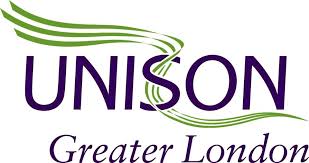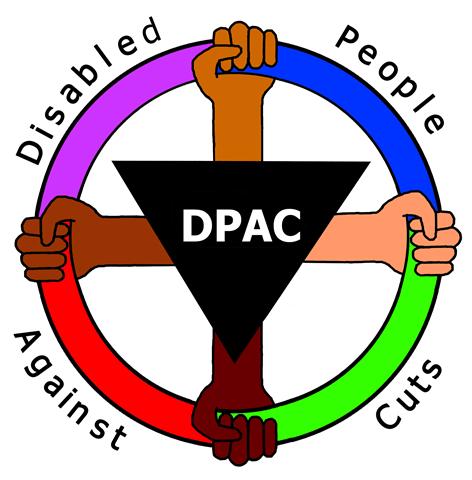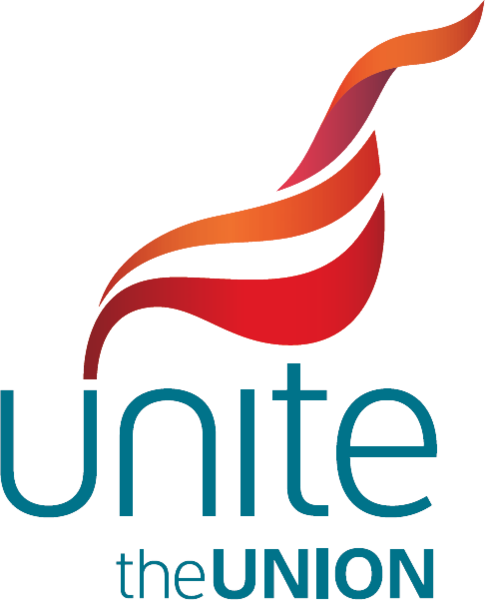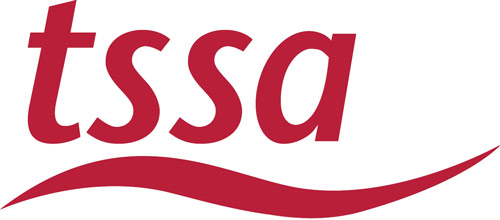Barnet Alliance for Public Services - residents, local organisations and trade unions campaigning for high quality public services in the London Borough of Barnet.
Staff Login
Alternatives to the One Barnet programme
Here are documents outlining alternatives to Barnet Council’s “One Barnet” privatisation programme, and professional critique of the programme. These are suggestions for how we can improve services and even save money through engaging staff, residents and service users. The reports flag the risks of “One Barnet”.
Service Improvement Plans by Prof. Dexter Whitfield, European Services Strategy Unit
100 days before the signing of the first “One Barnet” contract (£750 million): 100 reasons why “One Barnet” is high risk and bad for residents and services
Lately it transpired that Barnet council is considering a Joint Venture with the private company that will win the contract for Development & Regulatory Services (DRS), the smaller of the two contracts(“only” £250 million) , which were to be privatised in January. They say this will be better than a straight privatising (although this option had so far been always rejected as the worse of the privatisation models), claiming it will be transparent and retain a measure of control over services with the council. But many are warning that there will be no transparency at all as the new company to be formed jointly between the council and the successful bidder, will be a limited company that is exempt from Freedom of Information Act. Moreover, in this new company the council will have only limited shares, as its own executives claim, so in effect a Joint Venture means profits for the private company - and risks and losses for the council, i.e. for us, Barnet residents. see Mr Reasonable and The Barnet Eye.
Now we have a live example of our worst fears, to drive the true meaning of a Joint Venture home; we hope the Council Leader and Cabinet members will read this and draw the lessons before it is too late:
Somerset Council braces for lawsuit from Southwest One shared service venture













3 Comments
barnetrescue
Aug 30, 2012
A personal opinion from a BAPS member. It would be interesting to know what readers think Here goes: No political party or council cabinet can, on its own, bring people the change they need so urgently. For this, they need to involved themselves. The Tories want to blame citizens for the way they are mistreated. They refuse to help. Brian Coleman blames the system itself: “Residents will have to deal with their own issues rather than expecting the system to sort their lives out” he said With ONE BARNET they are trying to wriggle out of all their responsibilities as a council. It would not be difficult to run a council better than the present lot: with less incompetence, heartlessness, dishonesty, rudeness, waste, arrogance, deception, pomposity, hypocrisy, savagery and corruption! This would be more a humane way and it would save many £millions too. But goodwill alone will not give people better lives. It is hard to see how any council would even be able to maintain existing services. The Local Government Association predicts “a likely funding gap of £16.5 billion a year by 2019/20, or a 29 per cent shortfall between revenue and spending pressures”. Apart from social care, waste and e.g. concessionary fares they say cuts to remaining services could rise to over 90 per cent! The Tories claim there is just no money: in Coleman’s words: “I am afraid you have to live in the real world where the country has no money…” But in the real world the truth is that there is a surfeit of money. The government, can find an extra £50,000,000,000 for interest repayments on top of a staggering £1,200,000,000,000 [£1.2 trillion] promised to their city friends in bail-out deals. The top 1000 super-rich saw their wealth grow by £18,000,000,000 last year – to £414,000,000,000 in assets [not including what they’ve got in the bank] – enough to pay off our deficit without reaching into their pockets. There is more money in the hands of the super rich than they know how to spend. Up to £32,000,000,000,000 [twice the US GDP] is believed to be stashed away in offshore tax havens. Just seven individuals own more than the GDP of 41 poor countries [567 million people] put together. Every £1 o this is surplus capital which has to be dumped somewhere at a profit. And every £1 of that profit can't just sit there: it has got to be reinvested at a profit. And every £1…..and so it goes on. Money is clogging up the system to the point of breakdown. In the struggle to keep their ever expanding system going they have captured our water, electricity, gas, telecommunications, coal, railways,…now they are after our post office, our education, our hospitals and health service, our public services…..even the police. It was only the creation of elected local councils which could give London clean water, saving us from mass deaths through typhoid and cholera, which gave us municipal housing and planning. This is more than our super rich rulers can stand. They are engaged in a massive global offensive: a raid on public property. [That is why, in a twisted sense, Coleman is right: once the 'system' has ditched you, it is no use asking it to help you out] Those who defend the ONE BARNET Programme have somehow managed to convince themselves – or perhaps they are just hoping against hope – that one or two private for-profit corporations are going to save the day and release them from their obligations, but ONE BARNET is a tiny part of a systematic campaign which can only end up with the end of public services and the destruction of the last vestiges of local democracy. In the end there can be no solution until we can take control of the nation’s finances, set up a publicly owned central bank and find a way, between us of working out a democratic investment plan. But there is no need to sit about and wait for that dream to be realised. Firstly any council which had the interests of its citizens in mind should demand back from the national government funds and powers councils once had, which were removed. No more cabinet government. And an end, for example, to the £2,000,000,000 a year which is taken off housing revenue accounts to pay interest on social housing projects that were completed generations ago and which have already been paid for 20 times over! It should make sure that its officers no longer dictate policy to the elected members, but that they carry out the decisions of our elected representatives. That could help pay for new massive social housing schemes – using direct labour. But there are things that a council can do for itself straight away. Its aim has to be the maximum involvement of citizens in the decisions which affect their community at all levels. This could involve co-opting residents on to council committees and on to the ONE BARNET BOARD [for as long as it still exists] etc. – calling upon the disabled and their carers, pensioners’ groups, children, parents and teachers, students, homeless people, ethnic minority communities, shoppers to from joint working groups to look into the issues that affect them and to help work out programmes of action which can enable them to share in the running of the public services that are meant to serve them – e.g. to make use of local authorities’ statutory powers to make compulsory purchase orders, “if a proposed development is considered one for public betterment” or where there is a “compelling case in the public interest” to acquire empty unused or misused properties and land for the people who need it and can use it: controlled squatting, allotments and community farms….. Groups could be formed to work out similar plans to look into prices, wages and conditions in High Street shops and especially supermarkets, to lease out acquired shops as coops or e.g as outlets for local farmers, to set up groups of council workers, carers and clients to help run social care, to look into ways of providing carbon-free energy, into the possibilities for taking municipal ownership back of existing services and the provision of new ones which can both serve the community and bring in necessary funding to the council. Below is a series of links to sites which refer to existing and proposed schemes – some successful, some undergoing difficulties – designed precisely for this dual purpose – e.g. schemes to set up municipal banks, to provide free telephone and broadband, to provide free solar panels, to run community cinemas, theatres, cafes…water services…a “people’s supermarket” etc….some of these involve making deals with private businesses, but, so long as the council, council staff and residents are involved at every stage, from procurement and commissioning to scrutiny and control of the operations, then this need not be an insuperable problem. http://labourlist.org/2009/05/municipal-banks-or-municipal-banking/ water: http://gala.gre.ac.uk/2949/1/COMPLETED___Halld2007030.pdf http://en.wikipedia.org/wiki/Municipal_services http://www.electricity-guide.org.uk/home-power-generation.html http://www.water-guide.org.uk/rainwater-harvesting.html http://www.techdirt.com/articles/20120409/04495918425/uk-community-gives-up-waiting-high-speed-broadband-digs-its-own-fiber-trenches.shtml http://www.fiercebroadbandwireless.com/story/lte-replace-failed-muni-wi-fi-network-uk-city/2012-04-22 http://46.4.92.154/specialreport-ict-fuelling-econo/cash-strapped-regions-hesitate-j-news-510932 http://www.birminghamrecycled.co.uk/energy/free-solar-panels-in-lozells http://www.thepeoplessupermarket.org/ http://www.soilassociation.org/communitysupportedagriculture?gclid=CJXm_43b07ECFYcntAodt0YAzA
Mrs Nobody
Mar 28, 2013
Dear Mrs, Nobody. Thank you for your email, the contents of which I have read. Whilst I and indeed Cabinet have noted your observations I would like to take the opportunity to bring a couple of observations to your attention that support the current position of the service not being in-house. Firstly, the business plan for the organisation has always included a year when the service would move from being paid ahead of service delivery, with an estimate of likely service provision needed, to moving to paying after the event for a service provided. This will bring the service in-line with all or any competition. The assumption therefore has always been that 'Your Choice Barnet' would need assistance, including but not necessarily limited to, with cash-flow from its parent company. This is exactly what is currently happening. It is perhaps fair to add that as residents have chosen to use services by other providers, some 'Your Choice Barnet' services are currently under used and the changes being made are happening as we seek to keep these services popular with users. Secondly, there is a compelling argument that bringing 'Your Choice Barnet' in-house would ultimately reduce the long term viability of public sector owned care in Barnet. 'Your Choice Barnet' was created as a reflection of changes in the way residents access care. With the rise of Direct Payments (and, elsewhere, 'Right to Control') residents using services now have a choice of which provider they chose to receive services from. By way of example, the Council can not accept Direct Payments for Council-owned services, so as the uptake of Direct Payments increases for example, residents welcomingly obtain more choice, but the Council provided services would observe a decline in the number of people who would be able to continue to use the services as they can not buy them with their Direct Payment. The Council therefore moved 'Your Choice Barnet' to an owned and created Local Authority Trading Company specifically to protect the services you mention where they could then be purchased and ensuring that the expertise of staff continued to be available to residents. If we simply brought services in-house as you suggest these services would arguably "wither on the vine" as the number of residents using direct payments to access services rose. In relation to quality of service it is and should be the determination that services remain of the highest quality and are appropriately staffed. Of benefit in relation to the same is that residents and their carers have control over services, so that if for example any services ever fail to meet the standard they individually and personally demand, they can select a provider better able to meet their individual needs. Yours sincerely, Sachin Cllr. Sachin Rajput
tirza
Mar 31, 2013
Thanks for posting - we all got it. Make you wonder how stupid one can be to reply with such fabrications when the business case and the residents' questions are still available on the council web site. will post an an answer shortly. The European Services Strategy Unite conducted an analysis for Unison of the business case and published its findings on January 2012, here.